In
News
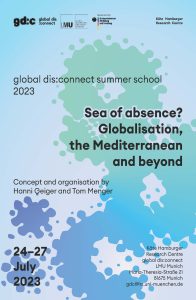 Concept and organisation by Hanni Geiger and Tom Menger, Käte Hamburger Research Centre global dis:connect, LMU, Munich.
Concept and organisation by Hanni Geiger and Tom Menger, Käte Hamburger Research Centre global dis:connect, LMU, Munich.
Presenters include Florian Bachmeier and Eckehard Pistrick, Constance de Gourcy, Celeste Ianniciello and Renata Poljak. Participants are also invited to attend an evening lecture by Eva Mayer and Eran Schaerf taking place at the centre on 26 July.
Sea of absence? Globalisation, the Mediterranean and beyond
Munich, 24-27 July 2023
The
global dis:connect Research Centre invites
MA, doctoral students and creative professionals in all stages of their careers to meet in Munich for a summer school on the absences produced by globalisation processes, focusing on
the Mediterranean, particularly on the aspects of
migration, tourism and (post)coloniality, in the past, present and future.
Like globalisation research generally, some of the most famous scholarship on the Mediterranean Sea has focused on the different connections that bind the ‘Middle Sea’ together (Braudel, 1949; Horden & Purcell, 2000). Its connections, however, have also created and obfuscated many absences: of people, of cultural belonging, of institutions, of personal and collective memories, of regions, of (art) objects, in archives, epistemologies, discourses, in stories and representations of and about the Mediterranean, and finally in our scholarship.
The summer school aims to combine subjects such as art history, history, social sciences, media and film studies, theatre studies, literary and cultural studies with artistic approaches. It will allow the participants to present their own projects and will feature several master classes by renowned scholars, as well as art and film presentations. All sessions will be held in English.
global dis:connect promotes
dialogue between scholarship and art as equal means to approach dis:connective phenomena of globalisation. Such phenomena leave few traces in archives and defy direct observation, but artistic practice can reveal them. Recent years have seen increased attention to the global Mediterranean and its absences, particularly in art, film, theatre, design and architecture.
Dissertation projects, grant proposals, exhibition projects and artistic interventions are all welcome. Participants can propose whatever format best suits their work, be it a traditional presentation, a film screening, an artistic intervention, a moderated discussion or a slide show. The
deadline for applications is
15 May 2023.
There are no participation fees. The Centre
will cover accommodation and travel costs for all participants.
Absences, globalisation and the Mediterranean
Starting from the concept of absences, including voids, erasures, exclusions and disappearances, the summer school will focus mainly on three distinct manifestations of absences in the Mediterranean: migration, tourism and (post-)coloniality.
Absences are not simply ‘absent’ and therefore invisible. Rather, as Derrida noted, they leave ‘traces’. Recent work has expanded on this notion and has even argued that absences can have spatiality, materiality and agency (M. Meyer & Woodthorpe, 2008). They are objects of research in addition to a perspective; they necessitate their own methodologies, combining different disciplines, theories and practices. The arts have proven particularly fruitful in illuminating absences, finding ways to visualise the repressed and the excluded, drawing attention to individual destinies and disappearances and addressing cultural belonging in connection with absences.
Many of the absences of today’s Mediterranean are inextricably linked to globalising processes. This is more than evident in the fact that many migrants crossing the sea (or dying in the attempt) are not from those shores, but from Sub-Saharan Africa, Iran, Bangladesh and further afield. Therefore, it is unsurprising that Mediterranean absences have been addressed in the context of
migration recently (CRISALIDE, 2017). This research has re-emphasised Abdelmalek Sayad’s notion of ‘double absence’ in the Mediterranean migrant experience (particularly of migrant labourers from Algeria). As conditions have changed in recent decades, this notion has been largely superseded by a ‘double presence’ (Saada, 2000). However, as Constance de Gourcy has shown, absence continues to be relevant and even constitutive of relations between origins and destinations (Gourcy, 2018a, 2018b). Of particular interest are Mediterranean borders, border regimes and the absences they create, like those that become visible in the Lampedusian project
Porto-M, a project collecting the objects lost, washed ashore or abandoned by those migrating across the sea (Askavusa, 2009).
Migration in the Mediterranean has always been entangled with
tourism since the 19
th century — a second lens through which to view absences in the Mediterranean. The Mediterranean as an idyllic vacation destination, where tourists can contemplate the origins of Western civilisation as reified in its archaeological ruins, swim in the turquoise sea and enjoy the benefits of the Mediterranean diet, has overwritten other conceptions of the region and marginalised many groups and areas (Terranova & Chambers, 2021).
Apart from migration and tourism,
(post)coloniality would provide a third lens to think through Mediterranean absences. Colonialism in the Mediterranean basin generated many absences for scholarship and art to address, such as settler-colonial processes of erasure (for instance, in colonial Algeria) and the dominance of colonial epistemologies that privilege the Mediterranean’s northern, European shore (Chambers & Cariello, 2019). Modern artists, such as Alessandra Cianelli and Beatrice Ferrara, have responded to these absences by opening a (post)colonial archive of Italy with subtle, personal works (Ferrara et al., 2014). Furthermore, links have also been drawn between the Mediterranean and the ‘Black Atlantic’, both as seas of dispossession and unbelonging, with biopolitical power over black and brown bodies today being replicated on the Mediterranean frontiers of the European Union (Terranova & Chambers, 2021).
The notion of ‘absences’ has always played a prominent role in postcolonial thought. Léopold Senghor, for instance, mused on absence and global Black (in)visibility in his poem
L’absente, while for Édouard Glissant and Frantz Fanon, the Mediterranean was either a reference point or a lived historical experience (Glissant, 1997, p. 33; Proglio et al., 2021). The summer school is an opportunity to consider the conceptual links among postcolonial thought, absence and the Mediterranean.
Absences have also affected cultural belonging throughout the region, either forming a basis of group identity (as for the Sephardi Jews) or as the result of nation-states’ attempts to conceal more cosmopolitan social realities, such as that of Levantinism in the eastern Mediterranean (Yehoshúa, n.d.; E. Meyer & Schaerf, 2022). The various invisibilities induced by advancing nationalism in the region are made manifest, for example, through digital techniques of erasure in film by Kamal Aljafari (Grunebaum, 2021).
Beyond Mediterranean absences in past and present, the summer school is equally interested in exploring Mediterranean
futures. What futures can be (re)imagined for a region affected by ongoing financial crises, mass migration and climate change?
We would like to stress that we conceive of the Mediterranean as broadly as possible and welcome proposals that go beyond the sea itself. Starting from the perspective of absences, possible topics for the summer school include:
- absent regions, agents, artefacts, institutions, discourses, theories and perspectives in/on the Mediterranean
- Mediterranean epistemologies/narratives, histories and the ‘unlearning’ of the Mediterranean (Chambers) through the lens of absences
- methodologies (artistic or scholarly) to explore Mediterranean absences
- the agencies, spatialities and materialities of absences
- invisible or hidden routes of migrations or borders
- lost, abolished or vanished objects and actors
- (mass) tourism and what it hides or removes
- colonial erasures
- postcolonial thinking on absences and their (im)possible overcoming
- absences and personal/collective affects and memories
- the (hegemonically curated) construction and concealment/disappearance/exclusion of Mediterranean cultural belongings and groups
- imagining Mediterranean futures through an engagement with absences (materially and ideologically/theoretically)
Global dis:connect is a research centre dedicated to exploring historical and contemporary globalisation processes. We’ve conceived the summer school to overcome disciplinary disconnections and bring together different subjects, approaches and geographies.
To apply, please send the following documents by 15 May:
- A CV (max. one page).
- A cover letter of no more than one page explaining your motivation.
- A description of what you intend to present at the summer school (0.5-2 pages). Proposals for artistic presentations can include images, links to videos, film stills and other media.
Please send us your application as a single PDF file by email to: Hanni.Geiger[a]lmu.de and T.Menger[a]lmu.de.
Please click
HERE to download the Poster.
Continue Reading
 Judd C. Kinzley from the University of Wisconsin-Madison joined global dis:connect in early July.
Judd Kinzley is a professor of modern Chinese history. His research treats borderlands, materiality and natural resources. He is currently working on the transnational exchange of Chinese raw materials for cash, weapons and industrial goods during World War II. This work reveals the transnational networks that developed to finance, produce and transport such resources. These trans-Pacific networks channelled objects in both directions during the war and served as the blueprint of a new postwar international order.
His project at gd:c focuses on the legacies of Allied wartime oil exports to China , the Middle East, SE Asia, the US and the European powers together.
Continue Reading
Judd C. Kinzley from the University of Wisconsin-Madison joined global dis:connect in early July.
Judd Kinzley is a professor of modern Chinese history. His research treats borderlands, materiality and natural resources. He is currently working on the transnational exchange of Chinese raw materials for cash, weapons and industrial goods during World War II. This work reveals the transnational networks that developed to finance, produce and transport such resources. These trans-Pacific networks channelled objects in both directions during the war and served as the blueprint of a new postwar international order.
His project at gd:c focuses on the legacies of Allied wartime oil exports to China , the Middle East, SE Asia, the US and the European powers together.
Continue Reading






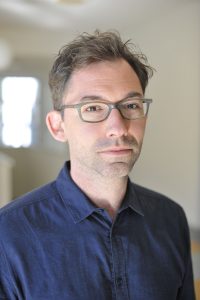 A warm welcome to our new guest Michael Goebel who joins global dis:connect in early September.
A warm welcome to our new guest Michael Goebel who joins global dis:connect in early September. In September Ifeoluwa Aboluwade commenced her term as a fellow at global dis:connect. Welcome.
Ifeoluwa Aboluwade is a literary scholar with a background in imperial and literary history, early modern English theatre, critical digital humanities, (trans)cultural translation and adaptation, black diaspora studies, postcolonial literary criticism, and gender and intersectionality. She works at the Africa Multiple Cluster of Excellence and is a lecturer at the University of Bayreuth. Ifeoluwa has received many international awards and fellowships, such as Fulbright and DAAD scholarships, most recently receiving the Shakespeare Association of America-Folger Shakespeare Library Short Term Fellowship (2022/2023).
At gd:c she is investigating the histories, patterns and genealogies (dis)connecting Shakespearean drama through topoi of trickster and warrior.
In September Ifeoluwa Aboluwade commenced her term as a fellow at global dis:connect. Welcome.
Ifeoluwa Aboluwade is a literary scholar with a background in imperial and literary history, early modern English theatre, critical digital humanities, (trans)cultural translation and adaptation, black diaspora studies, postcolonial literary criticism, and gender and intersectionality. She works at the Africa Multiple Cluster of Excellence and is a lecturer at the University of Bayreuth. Ifeoluwa has received many international awards and fellowships, such as Fulbright and DAAD scholarships, most recently receiving the Shakespeare Association of America-Folger Shakespeare Library Short Term Fellowship (2022/2023).
At gd:c she is investigating the histories, patterns and genealogies (dis)connecting Shakespearean drama through topoi of trickster and warrior. 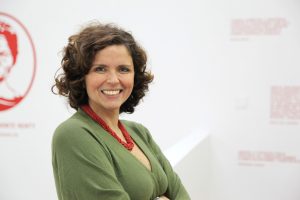 In early July, art historian Sabrina Moura joined global dis:connect as a new fellow. Welcome to Munich, Sabrina!
Sabrina Moura is a teacher, researcher and curator from Brazil. She holds a Ph.D. in art history from the University of Campinas. She authored Arqueologia da Criação [Archeology of Creation, 2022] — a book on the work of Brazilian artist Rossini Perez — and edited Southern Panoramas: Perspectives for other geographies of thought (2015), which presents historical and artistic perspectives on the Global South. Her work has featured in Mousse Magazine, Zeitschrift für Kulturwissenschaften, Stedelijk Studies Journal, African Art, Critical Internventions, 3rd Text Africa, among others.
At global dis:connect Sabrina is developing Cabinet Exotica Performing Absent Agencies from the Dawn of Natural Sciences, a project that focuses on contemporary visual and performative strategies.
In early July, art historian Sabrina Moura joined global dis:connect as a new fellow. Welcome to Munich, Sabrina!
Sabrina Moura is a teacher, researcher and curator from Brazil. She holds a Ph.D. in art history from the University of Campinas. She authored Arqueologia da Criação [Archeology of Creation, 2022] — a book on the work of Brazilian artist Rossini Perez — and edited Southern Panoramas: Perspectives for other geographies of thought (2015), which presents historical and artistic perspectives on the Global South. Her work has featured in Mousse Magazine, Zeitschrift für Kulturwissenschaften, Stedelijk Studies Journal, African Art, Critical Internventions, 3rd Text Africa, among others.
At global dis:connect Sabrina is developing Cabinet Exotica Performing Absent Agencies from the Dawn of Natural Sciences, a project that focuses on contemporary visual and performative strategies. 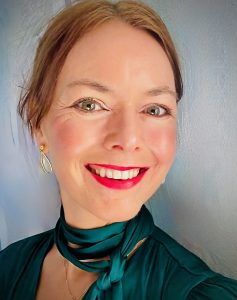 Nic Leonhardt from the University of Cologne joined global dis:connect in early July.
Nic Leonhardt is a theatre scholar and writer commenting on global theatre history; media, popular and visual cultures; and archiving and curating theatrical history. She has served as a senior researcher and fellow in multiple projects. Her latest monograph, Theatre Across Oceans. Mediators of Transatlantic Exchange (1890-1925), was published in 2021. She edits Global Theatre Histories and created the theatre history podcast Theatrescapes.
Nic is co-president of
Nic Leonhardt from the University of Cologne joined global dis:connect in early July.
Nic Leonhardt is a theatre scholar and writer commenting on global theatre history; media, popular and visual cultures; and archiving and curating theatrical history. She has served as a senior researcher and fellow in multiple projects. Her latest monograph, Theatre Across Oceans. Mediators of Transatlantic Exchange (1890-1925), was published in 2021. She edits Global Theatre Histories and created the theatre history podcast Theatrescapes.
Nic is co-president of 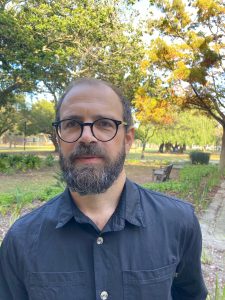 A warm welcome to our new guest Ross Truscott who joins global dis:connect in early June.
A warm welcome to our new guest Ross Truscott who joins global dis:connect in early June.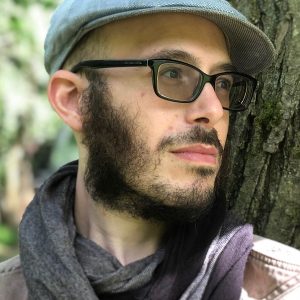 In April, historian Roii Ball commenced his term as a fellow at global dis:connect. Welcome, Roii!
Roii Ball is a social historian of nineteenth and twentieth-century Germany and Central Europe and their colonial entanglements. He is a postdoctoral lead researcher at the Religion and Politics Cluster of Excellence at the University of Münster. Ball earned his PhD from the University of California, Los Angeles in 2021 with a dissertation on the social dynamics and bureaucratic practices of German colonisation in the Polish provinces of Prussia before WWI (Advisor: David Sabean).
Ball’s work focuses on family and kinship to explore histories of colonisation and their intersection with empire-making and nation-making. His research interests include the history of knowledge, history of childhood, environmental history, and digital history. He has held fellowships at the University of Cologne, the German Historical Institute in Warsaw, and the Leibnitz Institute for European History in Mainz. During 2023 and 2024, he will also be a visiting research fellow at global dis:connect.
In April, historian Roii Ball commenced his term as a fellow at global dis:connect. Welcome, Roii!
Roii Ball is a social historian of nineteenth and twentieth-century Germany and Central Europe and their colonial entanglements. He is a postdoctoral lead researcher at the Religion and Politics Cluster of Excellence at the University of Münster. Ball earned his PhD from the University of California, Los Angeles in 2021 with a dissertation on the social dynamics and bureaucratic practices of German colonisation in the Polish provinces of Prussia before WWI (Advisor: David Sabean).
Ball’s work focuses on family and kinship to explore histories of colonisation and their intersection with empire-making and nation-making. His research interests include the history of knowledge, history of childhood, environmental history, and digital history. He has held fellowships at the University of Cologne, the German Historical Institute in Warsaw, and the Leibnitz Institute for European History in Mainz. During 2023 and 2024, he will also be a visiting research fellow at global dis:connect. 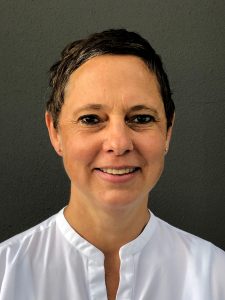 A warm welcome to our new guest Cathrine Bublatzky who joins global dis:connect in early April.
Cathrine Bublatzky is a media anthropologist and senior lecturer at the University of Tübingen.
She was formerly assistant professor at the Heidelberg Centre for Transcultural Studies.
She researches diaspora and exile, archives, visual and digital media cultures, photography, art, activism, and the aesthetics and politics of belonging throughout Europe, South Asia and the Middle East.
Cathrine has been speaker of the DFG Network Entangled Histories of Art and Migration: Forms, Visibilities, Agents (2018–2022) and author of Along the Indian Highway: An Ethnography of an International Travelling Exhibition, a monograph published by Routledge.
Her project Contemporary Photography as Cultural Praxis of Iranians in the European Diaspora, which she will continue at global dis:connect, was awarded a scholarship by the Baden-Württemberg Foundation.
A warm welcome to our new guest Cathrine Bublatzky who joins global dis:connect in early April.
Cathrine Bublatzky is a media anthropologist and senior lecturer at the University of Tübingen.
She was formerly assistant professor at the Heidelberg Centre for Transcultural Studies.
She researches diaspora and exile, archives, visual and digital media cultures, photography, art, activism, and the aesthetics and politics of belonging throughout Europe, South Asia and the Middle East.
Cathrine has been speaker of the DFG Network Entangled Histories of Art and Migration: Forms, Visibilities, Agents (2018–2022) and author of Along the Indian Highway: An Ethnography of an International Travelling Exhibition, a monograph published by Routledge.
Her project Contemporary Photography as Cultural Praxis of Iranians in the European Diaspora, which she will continue at global dis:connect, was awarded a scholarship by the Baden-Württemberg Foundation.
 Concept and organisation by Hanni Geiger and Tom Menger, Käte Hamburger Research Centre global dis:connect, LMU, Munich.
Presenters include Florian Bachmeier and Eckehard Pistrick, Constance de Gourcy, Celeste Ianniciello and Renata Poljak. Participants are also invited to attend an evening lecture by Eva Mayer and Eran Schaerf taking place at the centre on 26 July.
Concept and organisation by Hanni Geiger and Tom Menger, Käte Hamburger Research Centre global dis:connect, LMU, Munich.
Presenters include Florian Bachmeier and Eckehard Pistrick, Constance de Gourcy, Celeste Ianniciello and Renata Poljak. Participants are also invited to attend an evening lecture by Eva Mayer and Eran Schaerf taking place at the centre on 26 July.